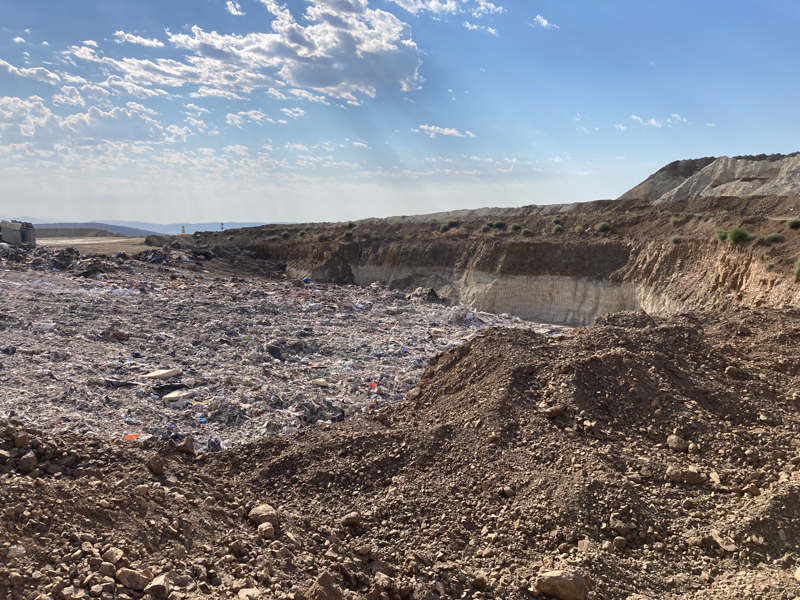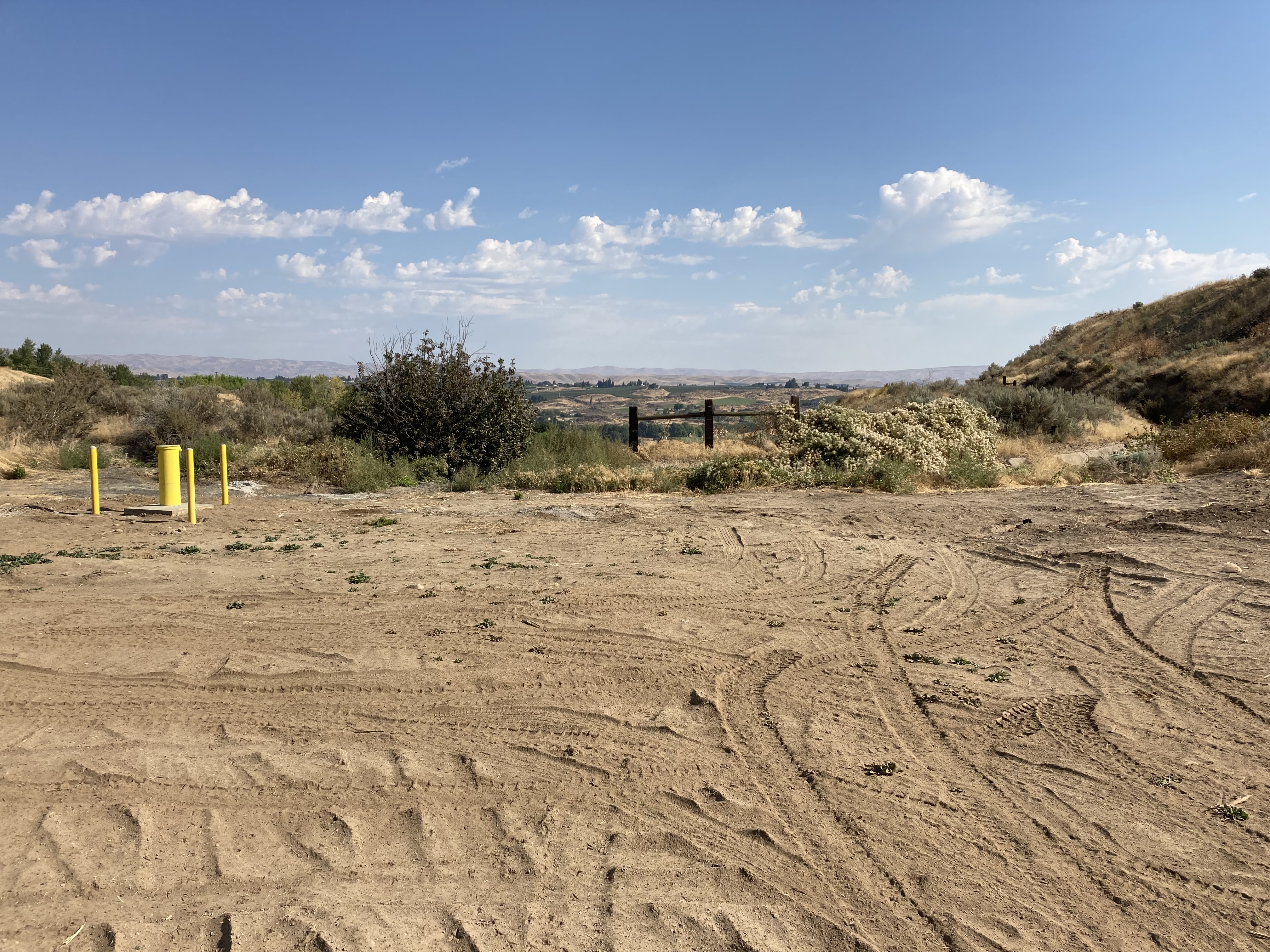
The Anderson Landfill, owned by DTG Recycle, is located at 41 Rocky Top Road in Yakima.
This post follows our last update about environmental issues at the Anderson Landfill in Yakima. Check out that post for more information about the site and why we’re investigating potential contamination.
Test results: no evidence of contaminated wells
In December 2022, Ecology staff sampled 12 wells at nearby homes. This happened before establishing a formal cleanup agreement with DTG Recycle, the company that owns the landfill. To date, we have found no evidence of contaminated drinking water near the Anderson Landfill.
Though we had not seen any indication that drinking water was unsafe, we heard worries from people living close by and we take those concerns seriously. We began sampling wells as a precaution so we could provide residents with clear answers.
Based on compounds previously detected in air samples, we tested for three different classes of chemicals that are hazardous to human health and the environment:
- Petroleum hydrocarbon compounds from fuel
- Polycyclic aromatic hydrocarbons (PAHs) — naturally occur in coal, oil, and gasoline
- Volatile organic compounds (VOCs) — typically human-made for paint, refrigerants, solvents, and fuel
All our results came back negative and confirmed that drinking water wells around the Anderson Landfill have not been impacted by chemicals we tested for.
While these results are reassuring, we’ll continue monitoring the situation and investigating potential contamination of groundwater at the landfill itself.
A new monitoring well, facing north. The Anderson Landfill is to the right.
New temperature and emissions data
The Yakima Health District, which permits the Anderson Landfill, required DTG to collect more data about the temperatures underground. DTG discovered high temperatures beneath the soil, indicating a fire from waste burning underground.
Though we did not find PAHs, VOCs, and fuel compounds in nearby drinking water, these were detected in gas emissions coming from a crack in the landfill’s surface at the end of last year. Additional data from March showed the air beyond the cracks and around the property line did not contain harmful levels of these chemicals.
DTG is working with the Yakima Health District and Ecology to confirm these findings and complete additional sampling for methane and hydrogen sulfide.
Based on these findings and the distance of the nearest residents to the landfill, we do not believe emissions from the landfill pose an immediate environmental health threat to the public. However, the presence of harmful chemicals in any emissions is concerning, and we're working with both DTG and the Yakima Health District to closely monitor the situation.
As DTG collects additional air samples, Ecology and the Yakima Health District asked the company to prepare a workplan to put out the fire. Extinguishing it could be complex and potentially dangerous work, so we expect the plan to carefully consider the safety of the landfill’s workers and surrounding community.
Public comment period on cleanup agreement with DTG
We hosted a month-long comment period in March to gather feedback about documents guiding the investigation and cleanup process. Now, we’re reviewing each question, suggestion, and concern we received. Your input will help determine what we do next to address the situation.
In the meantime, DTG is developing a cleanup workplan to submit to us. We’ll review the plan to ensure it’s thorough and transparent, and we may make changes based on the comments you sent our way.
We appreciate the time and effort from all who attended our public meeting or provided feedback during the comment period. As the agency overseeing environmental cleanup at the Anderson Landfill, we take our role seriously and are committed to keeping you engaged in every step of the process.
Future information will be published on Ecology’s Anderson Landfill cleanup webpage, and we’ll continue sending updates the investigation progresses.


